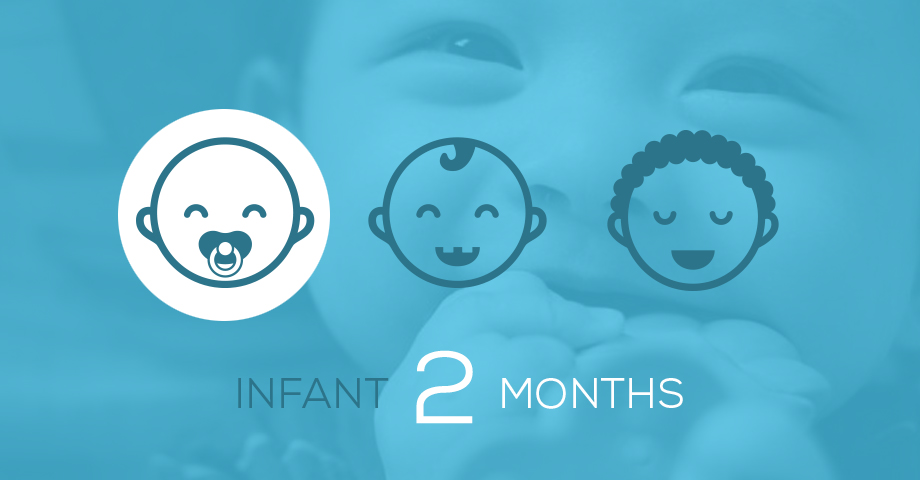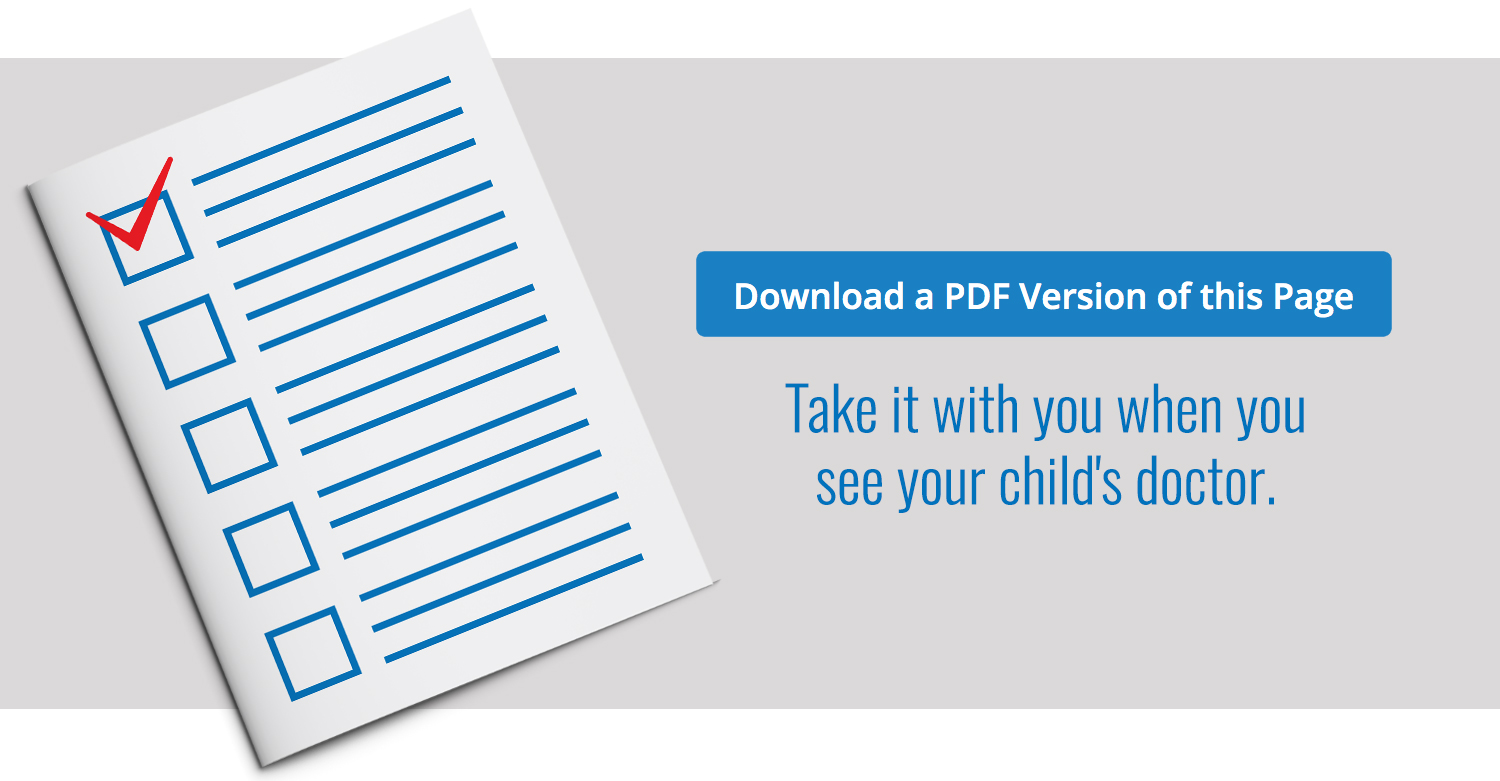
How your child plays, learns, speaks, acts and moves offers important clues about your child’s development. Developmental milestones are the things most children (75% or more) can do by a certain age.
Check the milestones your child has reached by 2 months, and talk with your child’s doctor at every visit about the milestones your child has reached and what to expect next.

What Most Babies Do at This Age:
Social / Emotional
- Calms down when spoken to or picked up
- Looks at your face
- Seems happy to see you when you walk up to her
- Smiles when you talk to or smile at her
Language / Communication
- Makes sounds other than crying
- Reacts to loud sounds
Cognitive (learning, thinking, problem-solving)
- Watches you as you move
- Looks at a toy for several seconds
Movement / Physical Development
- Holds head up when on tummy
- Moves both arms and both legs
- Opens hands briefly
Other Important Things to Share with the Doctor |
||
|
||
Concerned about your child’s development?
You know your child best. Don’t wait. If your child is not meeting one or more milestones, has lost skills he or she once had, or you have other concerns, act early. Talk with your child’s doctor, share your concerns, and ask about developmental screening.
If you or the doctor are still concerned:
- Ask for a referral to a specialist who can evaluate your child more; and
- Call your state or territory’s early intervention program to find out if your child can get services to help. Learn more and find the number at cdc.gov/FindEI.
For more on how to help your child, visit cdc.gov/Concerned.
Help Your Baby Learn and Grow.
Content provided by the Centers for Disease Control and Prevention’s “Learn the Signs. Act Early.” material and are not a substitute for a standardized, validated developmental screening tool.



